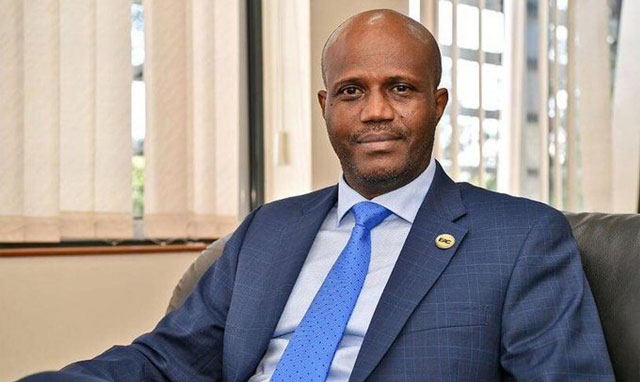
Kampala, Uganda | THE INDEPENDENT | The immediate former Secretary-General of the East African Community, Ambassador Libérat Mfumukeko hopes that he will be remembered as a man who steered the development of several infrastructure projects in the region and removal of ‘many’ non-trade barriers in the integration process.
“From 2016 to 2021 under my tenure, the community has recorded significant achievements in implementing the four pillars of the integration process. Under the Customs Union, the EAC Single Customs Union has been consolidated and many non-tariff barriers have been resolved,” he says.
The diplomat from Burundi, who had served as Deputy SG for Finance and Admiration handed over to Kenyan businessman and former EAC Legislative Assembly Representative, Peter Mathuki. Mfumkeko also served as an advisor to Burundi’s former president Pierre Nkurunziza as well as Director-General of Burundi’s energy and water utility, REGIDESO.
As SG, Mfumukeko served at the time when the EAC chair was under Rwanda President Paul Kagame, who was not on talking terms with the government of Burundi, Mfumkeko’s home country. Whether or not this affected either of the two men in their regional duties, is subject to debate.
However, President Nkurunziza hardly attended any EAC Heads of States meetings after accusing Rwanda of masterminding the attempted coup in Burundi in 2015. The late president also developed a cold attitude towards Uganda after President Museveni refused to support his bid for a third term amidst protests in his country.
Fred Mukasa Mbidde served as EALA Representative before and during Mfumukeko’s term. He says that it was his managerial skills that were more of a problem to his leadership than the people he had to serve.
As the man heading an organisation that is partly responsible for ensuring political harmony, Mfumukeko had little options to intervene in the quarrels among his bosses.
Burundi also stopped remitting her financial contributions to the EAC, but the reasons for this were left to assumptions. Was it political differences with partner states, the country’s financial hardships or the feeling that that smaller and newer member should not pay as much as the bigger and original three economies?
This, in addition to South Sudan, which is also highly indebted, meant that the EAC Secretariat had to operate with very limited resources. Never mind that even the other four partner states have not been prompt in fulfilling their financial obligations.
The former SG cited this as one of the hindrances to the performance of the secretariat. But Mbidde says the failure or refusal by the partner states to pay up in time is due to the SG’s failure to mobilise them.
He is also accused of a management style that was centered on himself, with audit reports citing him as micromanaging even tenders. This reportedly led to conflicts between the SG on one hand and the heads of the human resource department, the clerk of the assembly, among others, which Mbidde says hindered progress.
In the last year of his office, the legislative assembly had resolved to suspend sitting for lack of facilitation. Nevertheless, Mfumukeko lists a number of achievements during his term, in various areas like agriculture, health transport, energy and trade and investment.
He cites the water treatment centers and sanitation infrastructure which were established in five countries, including Mayuge, Kayabwe, Bukakata and Ntungamo in Uganda. Others were in Burundi, Kenya, Rwanda and Tanzania.
He also boasts of creating centers of excellence in the health sector, as well as giving out about 3,900 scholarships to students to the centers. In the agriculture sector, Mfumukeko said they supported mainly young farmers towards the harmonized phytosanitary standards, the agricultural product health standards.
At least US$40m was spent to improve standards in selected crops. Other projects credited to his four-year reign in the transport sector include the improvement of the inter-regional roads like the Masaka-Mutukula-Kasulo Road. The EAC Secretariat mobilized US$364m for the project connecting Uganda and Tanzania.
Another was the US$343M financing secured for the Kampala-Jinja Expressway, while other loans and grants were successfully mobilized for such projects in the road, rail and energy sector in the different countries. Mfumukeko says there were many challenges that they faced thought but that despite that they tried their best.
He will now be at the World Bank as representative of 22 African countries that borrow from the global lender through the International Development Association, IDA. “I welcome with humility and pride my appointment to the World Bank as IDA Borrowers’ Representative and Co-Chair for the Africa Group1 (22 countries including all EAC Partner States),” he said on Twitter to announce his appointment.
*******
URN
 The Independent Uganda: You get the Truth we Pay the Price
The Independent Uganda: You get the Truth we Pay the Price



